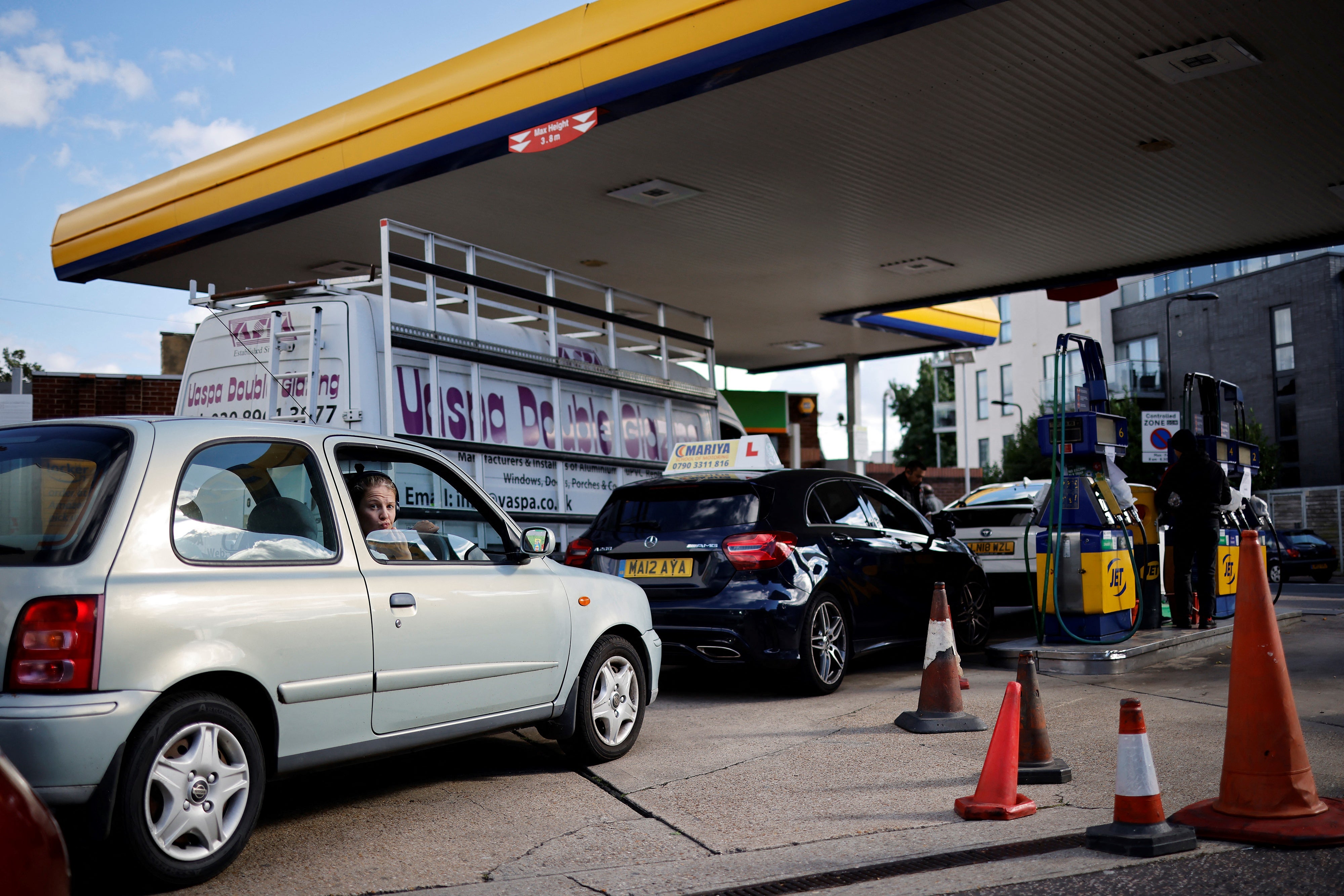Petrol retailers call for inquiry into fuel supply crisis
Fuel deliveries are still far too slow, say the Petrol Retailers Association

Your support helps us to tell the story
From reproductive rights to climate change to Big Tech, The Independent is on the ground when the story is developing. Whether it's investigating the financials of Elon Musk's pro-Trump PAC or producing our latest documentary, 'The A Word', which shines a light on the American women fighting for reproductive rights, we know how important it is to parse out the facts from the messaging.
At such a critical moment in US history, we need reporters on the ground. Your donation allows us to keep sending journalists to speak to both sides of the story.
The Independent is trusted by Americans across the entire political spectrum. And unlike many other quality news outlets, we choose not to lock Americans out of our reporting and analysis with paywalls. We believe quality journalism should be available to everyone, paid for by those who can afford it.
Your support makes all the difference.A trade body which represents thousands of fuel retailers has called for an independent inquiry into the ongoing fuel supply problems.
The Petrol Retailers Association (PRA) said that deliveries were still far too slow and that the recovery is “simply not happening quickly enough.” They also suggested that both motorists and forecourt owners need protection to prevent the crisis from occuring again.
PRA chairman Brian Madderson said: “The recovery is simply not happening quickly enough. We are into our 15th day of the crisis.
“There needs to be an independent inquiry into the crisis, so that motorists are protected from such acute fuel shortages in the future.”
The fuel supply crisis was brought on by a shortage of HGV drivers and exacerbated by panic buying which left pumps going dry.
The problems have been particularly acute in London and the South East, where shortages continue, according to the PRA.
On Thursday, a PRA survey found that 12 per cent of filling stations in London and the South East were still dry, while 17 per cent had one grade of fuel, and just 71 per cent stocked both.
The shortage is being felt less acutely outside of London and the South East, according to the survey. In the rest of the country 90 per cent of forecourts now have both grades of fuel.
Mr Madderson claimed a return to normal fuel levels has been “blighted by the current inept prioritisation policy”.
He added: “There is three times the capacity at filling stations per head of population in the rest of the UK compared to London and the South East.”
The government has drafted in military drivers to help with deliveries and on Monday 100 drivers from the armed forces began work helping to deliver fuel.
The majority of the military personnel have been sent to fuel terminals that service London and the South East.
But it is expected that by the end of this week 150 crews will be delivering fuel across the UK.
It also appeared an unspecified number of foreign tanker drivers have applied for temporary visas to fill a shortage of HGV drivers.
While the UK government has acknowledged there is a shortage of HGV drivers in the UK, they have claimed the problem is worldwide and suggested the long-term solution is for the haulage industry to invest in training instead of being reliant on workers from abroad.
Additional reporting by PA
Join our commenting forum
Join thought-provoking conversations, follow other Independent readers and see their replies
Comments